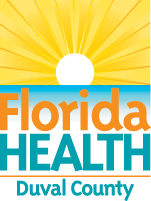It's a New Day in Public Health.
The Florida Department of Health works to protect, promote, and improve the health of all people in Florida through integrated state, county, and community efforts.
Florida Department of Health in Duval County Issues Precautionary Swim Advisory
September 05, 2019
Avoid contact with contaminated water. Do not swim in the ocean.
Contact:
Samantha.Epstein@flhealth.gov
(904) 524-2500
Jacksonville, FL — Due to the potential effects Hurricane Dorian will have on Duval County’s oceans, the Florida Department of Health in Duval County (DOH-Duval) has issued a county wide precautionary swim advisory for all public beaches. The concern rises not only from dangerous surf conditions but also from a possible elevation in the ocean’s toxicity levels.
Officials from the Florida Department of Health in Duval County advise against swimming in (or coming in contact with) the ocean at Duval County’s beaches – even days after the storm.
Ocean testing in Duval County is scheduled for the morning of September 5, 2019 to determine water quality at public beach locations. Test results will likely be available after 24 hours. As of today, individuals should assume that water contact may pose an increased risk of disease or illness, particularly for those susceptible to infection.
Additionally, residents should avoid contact with floodwaters which come from an overflow of any water body from rivers, lakes, or oceans. Floodwater may contain fecal matter from sewage systems, agricultural and industrial waste, and septic tanks. Floodwaters can also mask debris, downed power lines, and other hazards.
DOH- Duval recommends the following precautions after hurricanes:
- Follow basic hygiene during this emergency period. Always wash your hands with soap and water which has either been boiled or disinfected before eating and after toilet use.
- Do not allow children to play in floodwater. They can be exposed to water contaminated with fecal matter.
- Do not allow children to play with toys that have been in floodwater until the toys have been disinfected. Use 1/4 cup of bleach in one gallon of water to disinfect toys and other items.
- If you have open cuts or sores exposed to the floodwater, keep them as clean as possible by washing them with soap and disinfected or boiled then cooled water. Apply antibiotic cream to reduce the risk of infection. If a wound or sore develops redness, swelling or drainage, see a physician.
- After helping with cleanup activities and handling items contaminated by floodwater or sewage, wash hands with soap and water.
The latest testing on salt water beaches will be updated on DOH’s website:
https://www.floridahealth.gov/environmental-health/beach-water-quality/index.html.
For fresh water beaches, contact the Environmental Health Section of the DOH-Duval where the fresh water beach is located for information.
A list of county health department websites can be found here: https://www.floridahealth.gov/programs-and-services/county-health-departments/find-a-county-health-department/index.html
For further information, or to request an interview with a public health official, please contact Samantha Epstein or visit www.floridahealth.gov or www.FloridaDisaster.org.
About the Florida Department of Health
The department, nationally accredited by the Public Health Accreditation Board, works to protect, promote and improve the health of all people in Florida through integrated state, county and community efforts.
Follow us on Facebook, Instagram and Twitter at @FLHealthDuval. For more information about the Florida Department of Health please visit www.FloridaHealth.gov.





Connect with DOH